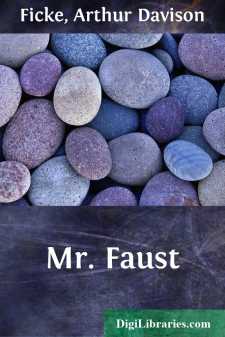Drama Books
Sort by:
by:
Bernard Shaw
ANNAJANSKA is frankly a bravura piece. The modern variety theatre demands for its "turns" little plays called sketches, to last twenty minutes or so, and to enable some favorite performer to make a brief but dazzling appearance on some barely passable dramatic pretext. Miss Lillah McCarthy and I, as author and actress, have helped to make one another famous on many serious occasions, from Man...
more...
by:
John Galsworthy
SCENE I Afternoon, on the departure platform of an Austrian railwaystation. At several little tables outside the buffet personsare taking refreshment, served by a pale young waiter. On aseat against the wall of the buffet a woman of lowly station issitting beside two large bundles, on one of which she has placedher baby, swathed in a black shawl. WAITER. [Approaching a table whereat sit an English...
more...
by:
Thomas Dekker
INTRODUCTION THOMAS DEKKER Thomas Dekker is believed to have been born in London around 1572, but nothing is known for certain about his youth. He embarked on a career as a theatre writer early in his adult life, the first extant text of his work being 'Old Fortunatus' written around 1596, although there are plays connected with his name which were performed as early as 1594. The period from...
more...
by:
Oscar Wilde
ACT I SCENE I The palace of the king of burmah. The scene is laid in the Hall of a Hundred Doors. In the distance can be seen the moat, the waiting elephants, and the peacocks promenading proudly in the blinding sunshine of late afternoon. The scene discovers king meng beng seated on a raised cushion sewn with rubies, under a canopy supported by four attendants, motionless as bronze figures. By...
more...
INTRODUCTION Through all the work of Arthur Davison Ficke runs a note of bigness that compels attention even when one feels that he is still groping both for form and thought. In "Mr. Faust" this note has assumed commanding proportions, while at the same time the uncertainty manifest in some of the earlier work has almost wholly disappeared. Intellectually as well as artistically, this play...
more...
by:
Eugene Brieux
PREFACE We are confronted at the present time by the woman who is anxious to lay by means for her own support irrespective of the protection of her husband. In this play I have indicated the tendency of this difficulty and the consequent troubles which the older civilizations will bring upon themselves when the woman's standing as a worker is generally acknowledged. My conclusion, namely, that all...
more...
ACT I The scene is laid in the park on SORIN'S estate. A broad avenue of trees leads away from the audience toward a lake which lies lost in the depths of the park. The avenue is obstructed by a rough stage, temporarily erected for the performance of amateur theatricals, and which screens the lake from view. There is a dense growth of bushes to the left and right of the stage. A few chairs and a...
more...
PREFACE A nice phrase: "A People's Theatre." But what about it? There's no such thing in existence as a People's Theatre: or even on the way to existence, as far as we can tell. The name is chosen, the baby isn't even begotten: nay, the would-be parents aren't married, nor yet courting. A People's Theatre. Note the indefinite article. It isn't The...
more...
by:
Mrs. Inchbald
REMARKS. This tragedy has been so rapturously applauded on the stage, and so severely criticised in the closet, that it is a task of peculiar difficulty to speak either of its beauties or its defects, with any degree of certainty. To conciliate both the auditor and the reader, both the favourable and the unfavourable critic, the "Grecian Daughter" demands a set of Remarks for each side of the...
more...
by:
William Congreve
TO THE RIGHT HONOURABLE CHARLES, LORD CLIFFORD OF LANESBOROUGH, etc. My Lord,—It is with a great deal of pleasure that I lay hold on this first occasion which the accidents of my life have given me of writing to your lordship: for since at the same time I write to all the world, it will be a means of publishing (what I would have everybody know) the respect and duty which I owe and pay to you. I...
more...











